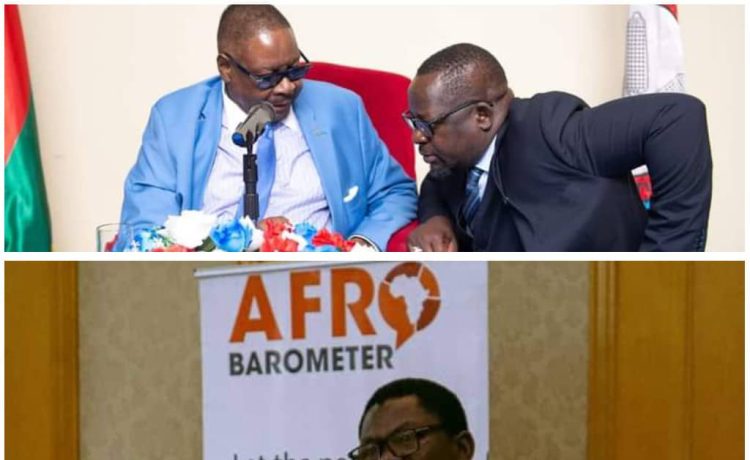The opposition Democratic Progressive Party (DPP) has expressed strong disapproval of the recent Afrobarometer report, dismissing it as “half-baked” and not adequately reflecting the pressing issues faced by Malawians today.
The Pan-African polling organization’s findings were unveiled in Lilongwe, during an event attended by various stakeholders, including political party representatives. The Round 10 survey, titled “Views on Judiciary, Rule of Law, and Office of the Vice President,” delved into topics such as the significance of the Vice Presidency within the government and public perceptions of corruption in the Judiciary.
DPP officials are particularly dissatisfied with the survey’s focus on the Office of the Vice President and the Judiciary, arguing that Afrobarometer missed key issues that they believe should have been addressed.
A senior DPP member commented, “Our party is frustrated. Many of us expected Afrobarometer to confront President Chakwera and the Malawi Congress Party directly on serious matters. Instead, they concentrated on minor issues like the Vice Presidency, leading us to question their credibility.”
Among the survey’s notable findings was that 80% of respondents believe the Vice Presidency should be abolished, citing its lack of value in Malawi’s political structure. Additionally, the report indicated that 40% of respondents think that judges and magistrates often base their decisions on the influence of powerful political figures rather than the law.
The findings further reveal that 64% believe that penalties for political and government leaders who violate the law are too lenient, while a slight majority (53%) feel that ordinary citizens face excessively harsh penalties.
In response to the report, the DPP has taken steps to engage with Afrobarometer’s key partner in Malawi, the Centre for Social Research, based in Zomba. A source from Blantyre revealed, “We are actively reaching out to Professor Boniface Dulani and Dr. Joseph Chunga, who are leading the survey efforts. We want them to take our concerns seriously, even offering to fund their next survey to ensure more relevant topics are covered.”
Historically, the DPP has been critical of Afrobarometer’s findings, with party members previously launching aggressive tactics against the pollster. Notably, during previous surveys, DPP cadres have reportedly attacked enumerators in Zomba and Mulanje, accusing them of disseminating false information. In a particularly tense situation, threats were made against Professors Dulani and Blessings Chinsinga to prevent the release of the 2017 Afrobarometer report.
Despite the backlash, a source within Afrobarometer has affirmed their commitment to the integrity of their survey methods, expressing gratitude for an environment where their safety is no longer a significant concern.
As the DPP continues to voice its frustrations, the conversation surrounding the survey highlights the complexities of public opinion polling in Malawi’s political landscape and raises questions about how political parties engage with research institutions.













